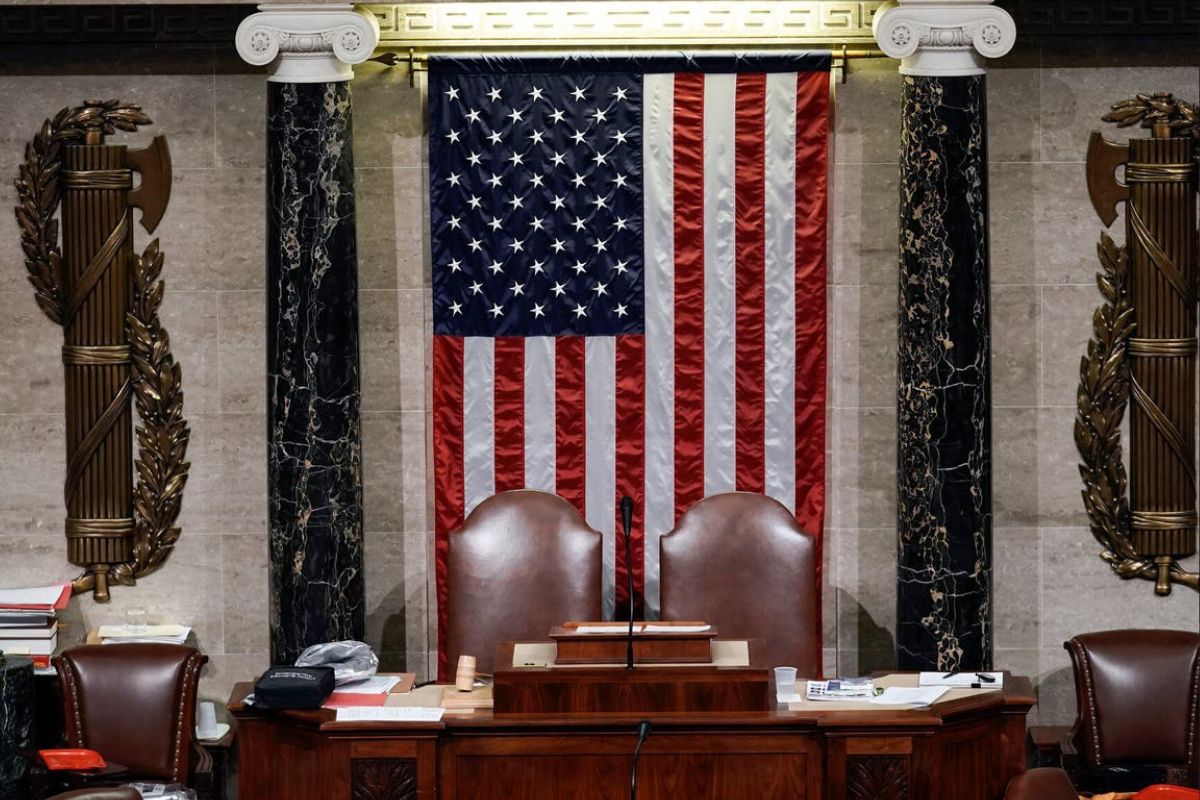Key agent held by police exposes donkey routes to US
A 20-year-old tenth-pass passenger was deported from the USA for allegedly entering through an illegal route.
Republican leader Kevin McCarthy failed to attain the required number of votes to succeed Nancy Pelosi as a Speaker on the first ballot.

(Photo: AP)
Kevin McCarthy became the first majority party leader in a century to fail to secure the speakership on the first ballot. California-Republican Representative McCarthy witnessed nineteen Republicans voting for someone other than him for House Speaker on the initial ballot Tuesday.
Among the voters, 10 voted for right-wing Representative-elect Andy Biggs (R-Ariz.): Biggs himself, Dan Bishop of North Carolina, Andrew Clyde of Georgia, Eli Crane of Arizona, Matt Gaetz of Florida, Bob Good of Virginia, Paul Gosar of Arizona, Ralph Norman of South Carolina, Scott Perry of Pennsylvania and Matt Rosendale of Montana, according to The New York Post.
Meanwhile, six other members, Lauren Boebert of Colorado, Mike Cloud of Texas, Anna Paulina Luna of Florida, Mary Miller of Illinois, Andy Ogles of Tennessee and Keith Self of Texas, voted for Representative-elect Jim Jordan (R-Ohio).
Advertisement
Representative-elect Josh Breechen of Oklahoma supported Jim Banks of Indiana and Andy Harris of Maryland-backed New York Republican gubernatorial candidate Lee Zeldin. Representative-elect Chip Roy of Texas cast his vote for colleague Byron Donalds of Florida.
Advertisement
House Speaker Nancy Pelosi was elected with 216 votes in 2021.
All 212 Democrats in the chamber supported Brooklyn and Queens Representative Hakeem Jeffries, the first black leader of either party in the House, The New York Post reported.
McCarthy himself got 203 votes, and his supporters signalled a willingness to go through multiple ballots to ensure he got the gavel.
McCarthy does not technically need 218 votes to become a Speaker. A majority of those present and voting is required to get the speakership, which is usually 218 lawmakers.
After the result, Representative Kevin McCarthy told reporters that he was not surprised by the first ballot and criticized his opponents. “What we’re doing here right now is we got a number of members who are trying to fight for their own personal items instead of fighting for the country,” McCarthy said, alluding to efforts to secure concessions from him, The Washington Post reported.
A second vote for Speaker began immediately, and the House will continue through possibly multiple ballots until a Speaker is elected.
Advertisement